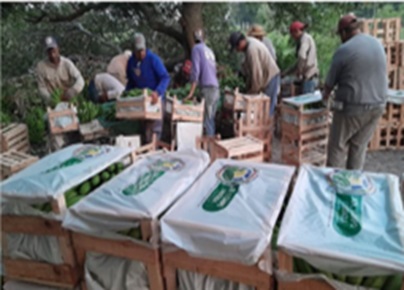Argentinian Banana Growers Sell Their Fruit at the Local Market
2023-11-24

Argentine banana growers from the province of Formosa, grouped in the Sol y Campo Cooperative, began to sell in the Central Market of Buenos Aires thanks to the high demand for the fruit after Bolivia and Paraguay stopped exporting to Argentina due to lack of payment.
Pánfilo Ayala, President of the Laguna Naineck Branch of the FAA and banana producer, explained that the lack of payment by Argentine importers had opened this commercial possibility in these last weeks of November and during October through the Sol y Campo Cooperative that they established with other producers, they have been able to market directly and supply the demand in the country. He commented satisfactorily, although the price was not yet what they wanted. "We are committed to being able to consolidate a permanent, fluid commercial relationship that has continuity and that we can position ourselves in the main consumption centres of the country, that people look for our fruit and that we can compete with foreign bananas."
Regarding the national production capacity, Ayala said, "Argentina consumes about 500 thousand tons, of which we, the people of Formosa, were producing 60 thousand, the people of Salta 90 thousand, around 150 thousand tons combined," he detailed to emphasise that, for this reason, "we always told the Argentine State, politicians and officials, that they take into account local production and that only what is needed is imported. "The problem of non-payment for imported bananas made the markets start looking at the local production area, mainly in Formosa." Currently, they already have "commercial agreements" to sell bananas directly in the markets, and they are also about to close a commercial agreement with a factory in the city of Mar del Plata. Ayala added that the Sol y Campo Cooperative has already sold more than 400 tons of bananas. "It's not much, but if this situation didn't occur and if the Cooperative didn't exist, that amount of bananas would be rotting on the farms," adding that competing with foreign fruit is not a problem, but that the disadvantage they face is because "the conditions for the protection of national production are not met. There is no trade certainty; if we had that and a minimum reference price, we could compete strongly with imported bananas.









